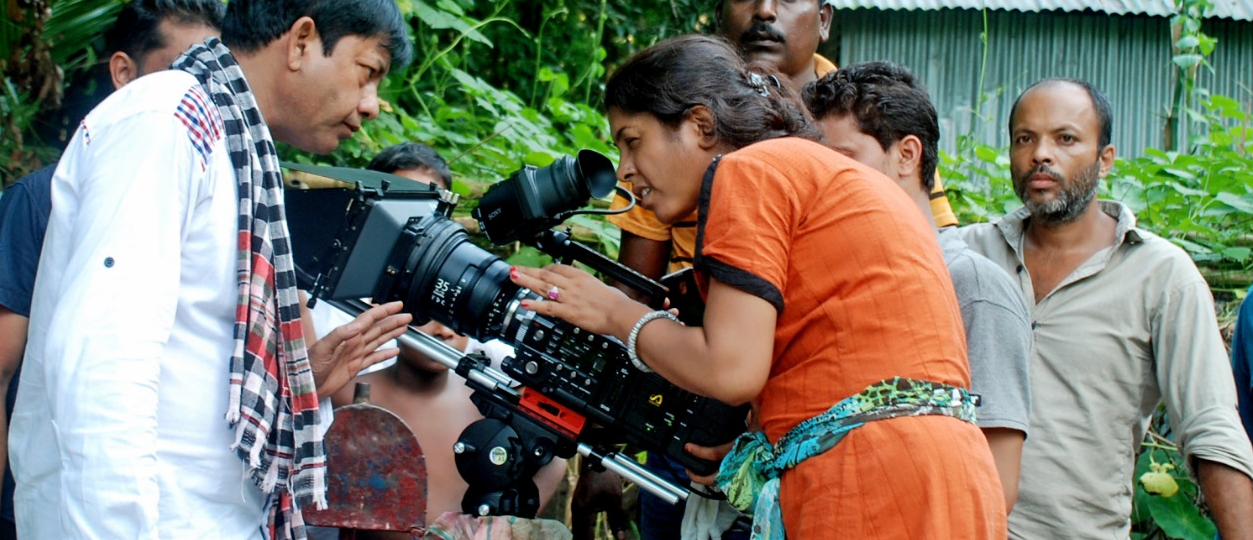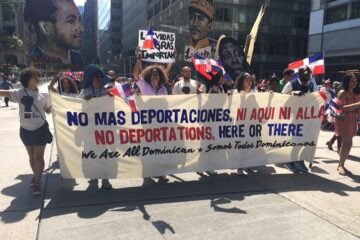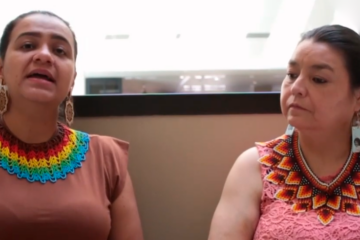The electoral process that took place last week in the United States has been dominated by a racist and xenophobic anti-migrant discourse. Apart from the conspiracy theories created and encouraged by Trump during his campaign, and that are the foundation of his far-right project, the truth is that migrants in the country represent a significant part of the working class that sustains life and the economy through hard and often precarious work. Capire talked to Rowshon Nipa to understand migrants’ struggles in the US and their relation with arts and culture. She is a community organizer at Desis Rising Up and Moving (DRUM), a membership-led organization, working for immigrant, gender, climate, racial, education, and housing justice.
“Desis are the South Asian, and Indo-Caribbean folks. We work with these immigrants, youth and working class people here in New York City. We do advocacy, and we build leadership within our community.”, she explains. The militant for migrant rights was born in Sirajganj, Bangladesh, and express her community identity through her films. Since her childhood, Rowshon was inspired by her father to love and work with movies and the theater: “I have a lot of interest in the theater and I worked with him as a theater artist. During university time, I was very active on the theater and also on the leftist politics”.
In 2000, Rowshon got a scholarship from BBC for producer training, and started to work with documentaries, movies, and television. For her films, Rowshon got the UNICEF Award at the 32nd International Emmy Awards (2004), which facilitated her way into the United States when she had to migrate due to economical and political issues in 2017. Her latest movie, All Alone (2024), got a nomination for Best Women Empowerment Project at the Roshani International Film Festival, and got the Best Screenplay Short award at the Berlin Indie Film Festival. In addition to the awards, she has built up a trajectory of resistance and engaged art, connected to the political organization, and committed to confronting violence against women.
How did you start working with DRUM?
After the Emmy, I never stopped, but there are so many things I had to fight as a woman. People always want to dominate me. I was attacked by supremacist groups in Bangladesh. I was worried about my safety, they also threatened my daughter. So I decided to come to the USA. In October 2017, I came here, and I submitted documents for immigration. They offered me the EB1 category as an Emmy winner.
When I got here, there were so much uncertainty too. I started to do some hard work in grocery shops, gift shops. In the meantime, I joined a community television where I met one person from the staff of DRUM, and she was talking about social justice issues. I was just amazed. I came to their office and I saw that in the computer there was a Che Guevara picture. Wow. I mean, it’s the USA, that’s something new. So I just got connected and I continued to volunteer with them.
I started interpreting and doing a lot of translation for them. They asked me if I wanted to work in the organization building the Bronx base. In 2019, I started as staff with DRUM, as a community organizer. From then to till now in Bronx, there is a base of more than 700 people, including around 30 leaders.
What are the challenges that South Asian immigrants, especially women, face right now in big urban centers like New York City?
Immigrants has specific issues with their jobs, their surviving, their housing, but I want to say that for the women, the biggest issue is domestic violence. The majority of middle-aged women don’t have control over their own life. They earn money because the family needs that, but they don’t have control of the economy. They have to work, and they have to fulfill their domestic roles. Only then, they are allowed to go outside. But wherever they are going, they are being monitored with apps. They don’t have a personal life or identity.
In 2021, we had a big action about the undocumented relief fund for the pandemic, when we got the stimulus. The undocumented peoples had no government support, and they suffered a lot. There were hundreds of people over the action in Manhattan. It was Moshe’s, one of our members, first time in an action. When she came out from the subway and saw so many people chanting, she said “wow, this is the first time I feel that I’m a human being. I have something to raise up my voice for.” That’s what I mean.
From the very beginning, I suffered a lot of oppression in my life. Because of being Black, being a woman, a poor person, a vocal person. I actually left my country because I’m vocal. I cannot compromise. I always insist for people to be themselves.
Bangladeshi middle-age women never think they are complete human beings. In their childhood, their parents control them. When they grow up, they get married, and their husband controlled them. In some places, you are not allowed to go outside without a support person. Even if your brother is 10 years old, you have to take him with you to go outside. We need a lot to leave from that, and to be a full person.
You were talking about how, with time and with organization, women learn that they are whole people with powerful voices. That’s the subject of your latest movie, right? Can you tell us more about it?
This movie idea just came to my mind in 2015. I was in Bangladesh and so many rape cases were happening. I wrote an article on a newspaper in Bangladesh saying that women should protest. For me, it was like that. Even in the bus, if they tried to touch my body, I would do something. And if people questioned why would I beat those guys, I would ask back: “why you are asking me?” That’s how I thought about the movie story. The girl took revenge. On people’s minds, rape victims are always weak, and ashamed. Then I thought I wanted to make something where women are powerful.
After this idea, I came to this country and I had to struggle. I was totally far from my films. When covid-19 came, I thought I had to do something and get back to my passion. But how could I actually make it? I didn’t have money. So I asked some of my friends to volunteer. My daughter is the main character, Amrita. Somehow we made it just this year, when we got the final production.
Why do you think that telling stories of immigrant women is important?
As an organizer, I saw that the political education is the hardest part to a community, especially to grassroots people. But when they watch something, then just they adopt it. I always believed that social change should go with entertainment. It’s not that kind of knowledge you are just receiving, and cannot digest. You just forget these.
Our community always loved Bollywood things, Bollywood music, Bollywood dresses, Bollywood films, but this story was never told. Nobody knows the actual immigrant people’s, the working class people’s stories. I am trying to make these movies from the last five years. I actually knocked in every door, but they asked me, “why the protagonist character is Black? It should be white.” But this is the representation of actual facts. In our base, we organize every month a movie exhibition about the LGBTQ+ people and other things. That’s how we do the political education. I feel that movies are the most powerful things —or theater, or cultural artwork. That can be powerful for the revolutionary work, to bring all the people together.




